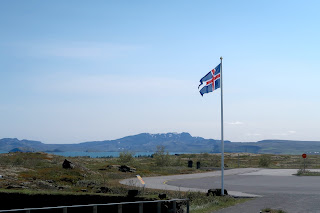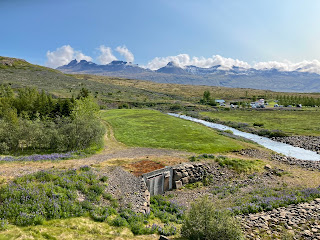The adjective "Ridiculous" may seem like an odd one to describe an entire country, but after only two days driving the Ring Road in Iceland, "Ridiculous" was the perfect descriptor -- never a curve or turn could we take that didn't end up with a new edition of mind-boggling landscape and scenery. If it is possible to gawk for nine days straight, then "gawk-fest" sums up perfectly "What I did on my Summer Vacation in 2025."
Most tourists go counterclockwise along the primary highway (the Ring Road) around Iceland starting with the famous (and often overwhelmed with tourists) Golden Circle near Reykjavik, heading south, then east, then north, then west, and finally re-entering Reykjavik from the north.
We chose to go the opposite way.
With my annoyingly "thin blood", a result of having grown up in Florida, I thought it made sense to start with the coldest weather first, in the North, and progress to a more pleasant climate in the South as we approached the end of our visit.
While I tried my best to condense our clockwise adventure around Iceland into a single blog, I failed miserably -- the memories cascading onto the page simply went on and on and on despite my attempts to control myself. If you prefer to view highlights of Iceland with a minimum of text, here are a few slideshows:
Snaefellsnes Peninsula (Northwest Iceland)
Studlagil Canyon (Northeast Iceland)
Skaftafell Preserve in Vatnajökull National Park (South Iceland)
A Sampler of Icelandic Waterfalls (All over Iceland)
GullFoss (Golden Waterfall, along the Golden Circle near Reykjavik)
For more of my rambling on Ridiculous Iceland, a day-by-day look at our trip:
Day 1, Reykjavik and Thingvellir National Park


























